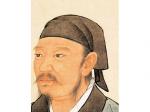Disable ads!
Xun Zi
Xunzi Chinese 荀子 Literal meaning "Master Xun" Transcriptions Mandarin Hanyu Pinyin Xúnzǐ Wade–Giles Hsün-tzu Min Hokkien POJ Sûn-tzú Wu Romanization Sin-tzy Cantonese Jyutping Seon-tzi Middle Chinese Middle Chinese Zwin-tzí Old Chinese Baxter-Sagart s-N-qʷin mə-dzəʔ Confucianism History Confucius Mencius Xunzi Spring and Autumn Period State of Lu Neo-Confucianism New Confucianism Fundamental concepts Ren Yi Li Xiao Zhong Confucianism by country Confucianism in Indonesia Korean Confucianism Japanese Confucianism Confucian texts Four Books Analects Doctrine of the Mean Great Learning Mencius Five Classics Classic of Poetry Book of Documents Book of Rites I Ching Spring and Autumn Annals Organisation Confucian temple Confucian church Xuanyuanism Portal Confucianism v t e This article contains Chinese text. Without proper rendering support, you may see question marks, boxes, or other symbols instead of Chinese characters. Xunzi ([ɕy ntsi ]; Chinese: 荀子; Wade–Giles: Hsün Tzu, ca. 312–230 BC) was a Chinese Confucian philosopher who lived during the Warring States period and contributed to one of the Hundred Schools of Thought. Xunzi believed man's inborn tendencies need to be curbed through education and ritual, counter to Mencius's view that man is innately good. He believed that ethical norms had been invented to rectify mankind. Educated in the state of Qi, Xunzi was associated with the Confucian school, but his philosophy has a pragmatic flavour compared to Confucian optimism. Some scholars attribute it to the divisive times. Xunzi was one of the most sophisticated thinkers of his time, and was the teacher of Li Si and Han Fei Zi.
 Read more on wikipedia.org Read more on wikipedia.org
 All quotes by Xun Zi All quotes by Xun Zi
 Edit Edit
|

|
|
|
|
|
Background photo by Giuliana
|